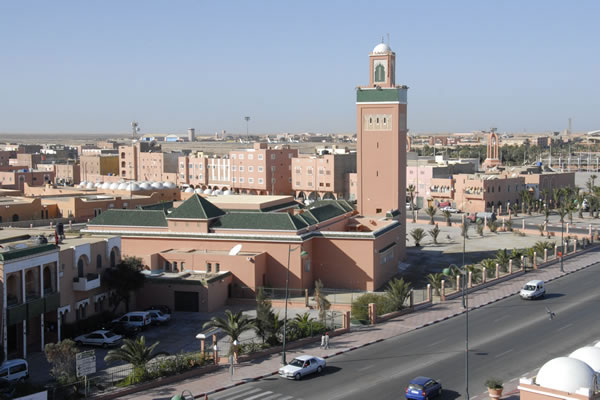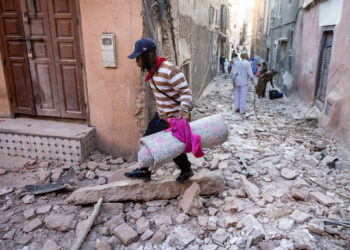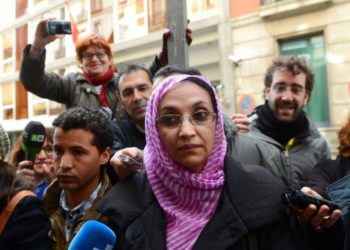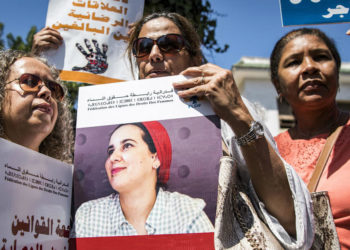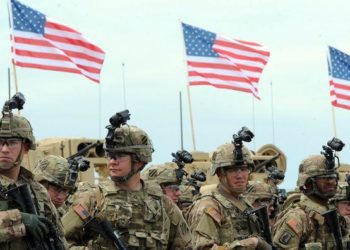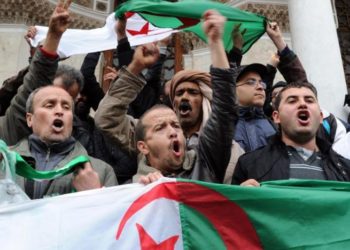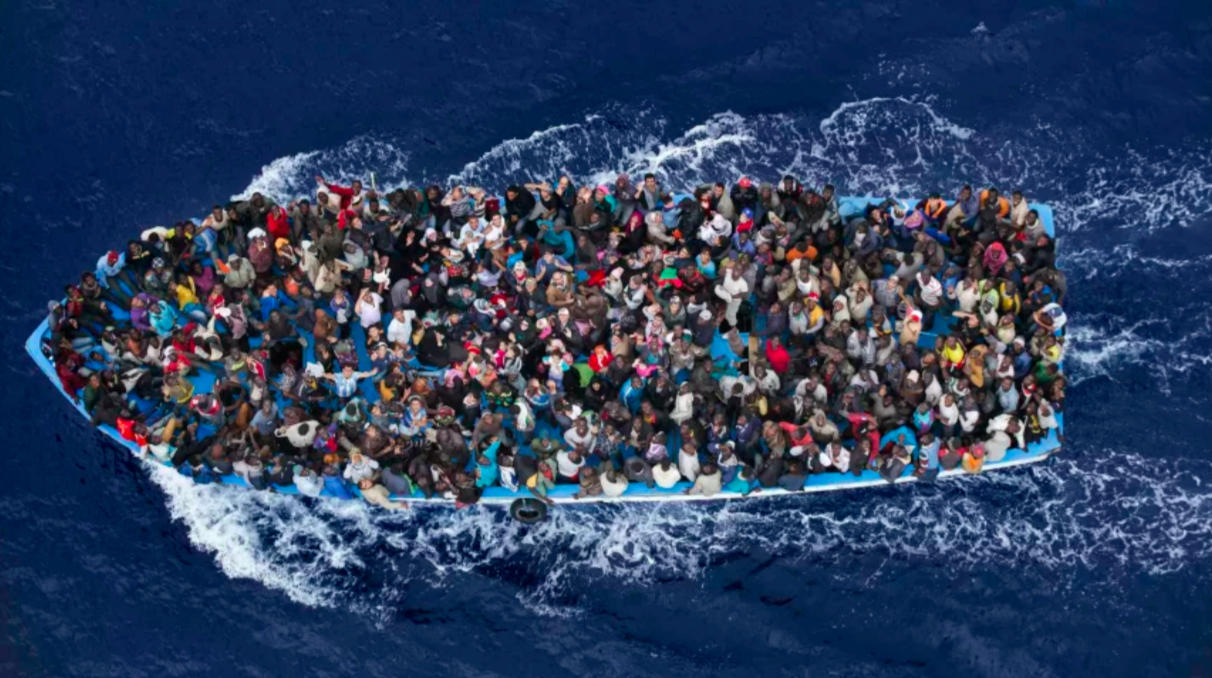On the western coast of Northern Africa are a territory, a conflict, and a people that the world has mostly forgotten. Though many do not realize it, this level of neglect has serious ramifications for the state of democracy in the Middle East and North Africa.
As the right to national self-determination in Western Sahara has gone ignored and unfulfilled, a unique potential for the creation of a robust and functional democracy has also gone tragically unheeded.
In order to prevent future conflict and diminish possible openings for radicalization, it is important for world leaders committed to human rights and international stability to recognize the democratic potential of Western Sahara for what it is: a rare opportunity for low-cost, high-yield democratic transition and the best possible outcome for citizens in the region.
Western Sahara was the subject of Spanish occupation beginning in 1884, but the United Nations designated it a “Non-Self-Governing Territory” in 1963, granting the indigenous Sahrawi population the right to vote to determine the fate of their statehood.
Spain was slow to de-colonize and negligent in facilitating a referendum for self-determination, however. This led to the creation of a Sahrawi military organization called POLISARIO (“Frente Popular para la Liberación de Saguia el-Hamra y de Ora,” or Polisario for short) which opposed continued Spanish rule and represented a nationalist agenda on behalf of Sharawis.
Spain finally withdrew in 1976, and Polisario established a government in waiting called the Sahrawi Arab Democratic Republic (or SADR). However, at this time, neighboring states Morocco and Mauritania laid claims to the territory and waged military campaigns against Polisario to annex their land.
Mauritania withdrew from the conflict in 1979, ceding victory to Polisario and the SADR. However, Morocco refused to yield and remains in a military stalemate with Polisario to this day. Throughout the decades, Morocco has also expatriated its citizens to Western Sahara and used other extreme means of sabotaging a Sahrawi vote of self-determination.
For example, as New York Times journalist Chris Hedges observed in 1995, “Morocco has tapped United Nations phones, confiscated voter documents from residents [and] denied others the right to enter registration centers.” This was during a failed attempt by the United Nations at finally facilitating a vote.
The SADR went from being a government in waiting to a government in exile. They currently administer control within refugee camps in Algeria, where approximately 90,000-125,000 Sahrawi individuals have lived for decades. There are also tens of thousands of Sahrawi refugees living abroad.
Why is the democratic potential of Western Sahara so strong? Considering the beleaguered history of Western Saharan governance, and considering the longstanding status of Sahrawi citizens as refugees, it may seem counterintuitive that a robust and flourishing democracy could be the result of independent statehood, if such is the ultimate result of a Sahrawi vote for self-determination (and visiting missions by the UN have observed an “overwhelming support” for this outcome).
Yet, a number of conditions are present among the Sahrawi populace that many comparative political scientists understand to be predictors of democratic success. Among them is the strong sense of national solidarity that underlies the Sahrawi campaign.
The crux of Sahrawi political identity is a desire for statehood, which reflects a unified commitment among Sahrawi individuals to the legitimacy of their government. This unified commitment does not exist in states such as Iraq and Syria, for example, where artificial state boundaries frame deep ethnic and national divisions.
Additionally, Sahrawis not only exhibit an avowed democratic agenda (their Constitution upholds freedom of speech, the presumption of innocence before trial, universal adult suffrage, and the right to form political parties, among other democratic values) but – more importantly – they demonstrate longstanding social conditions conducive to democratic success.
For example, representatives in the Polisario’s General Popular Congress are voted in by Sahrawi citizens (including women), Sahrawis express political views freely and engage in productive debate, women play significant and respected roles within politics and the community, and – as political scientist Stephen Zunes corroborates – “governance in the refugee camps includes a network of health care centers, cottage industries, agricultural projects, and distribution systems.”
Zunes further notes that a transition in Polisario governance during the 1980s and 90s, which saw a decentralization and democratization of Sahrawi self-rule, may have been “the first time that [a] serious division within a national liberation movement was resolved through nonviolent action, avoiding disintegration into armed factions or the establishment of a new rival organization.” This indicates a strong Sahrawi commitment to the rule of law.
Sahrawi social and democratic values indicate a real potential for successful democratic governance if statehood is achieved. However, Sahrawis cannot, and should not be expected, to resolve their lack of statehood own their own. Foreign support – ideological, diplomatic and economic – is vital for paving a road to peace and aiding the SADR if it attains independence.
Although navigating a solution to the Western Sahara conflict in favor of Sahrawi self-determination requires negotiating terms of peace and concession with Morocco, as well as with France (a strong Moroccan ally), alternative resolutions threaten regional stability to a greater extent.
Exiled Sahrawis have lived for decades with the hope of returning to their Western Saharan homeland, and reneging on the promise of this possibility could both intensify a refugee crisis and open opportunities for political extremism, which has the potential to attract disenchanted youth less committed than their parents to a democratic ideology.
Because the status of democracy itself is implicated in the future of this territory, those committed to the stability of a liberal international order should be steadfast in their support of Western Sahara and the Sahrawi cause. It is my belief that not only international organizations but also leaders and diplomats of powerful democratic states should make it a priority to commit to a means of actualizing a referendum for Sahrawi self-determination.
Western Sahara represents a possibility to promote both stability and democracy by diplomatic means, and democratic leaders would be remiss in continuing to neglect it.
Disclaimer: The views and opinions expressed here are those of the author and do not necessarily reflect the editorial position of The Globe Post.

